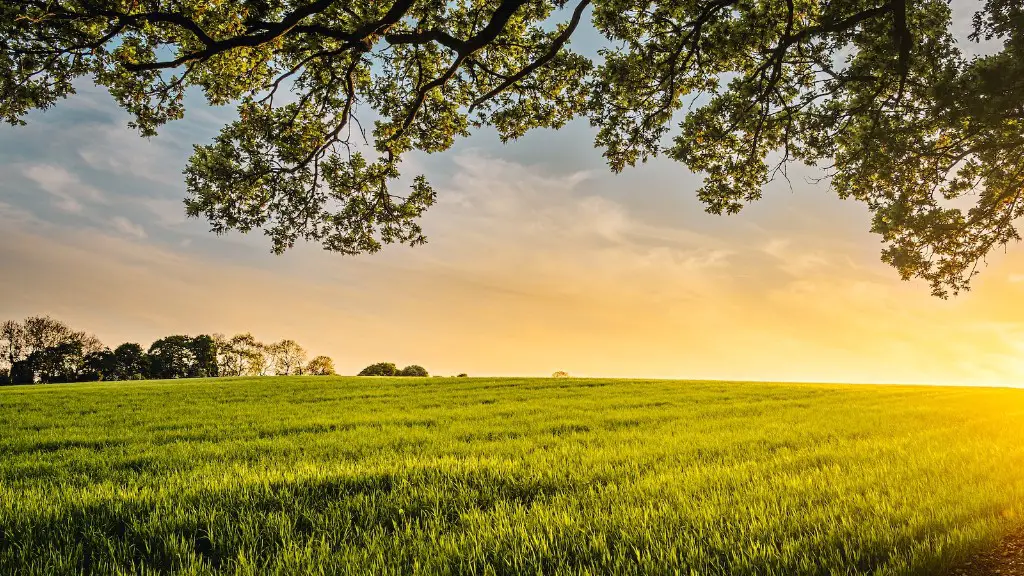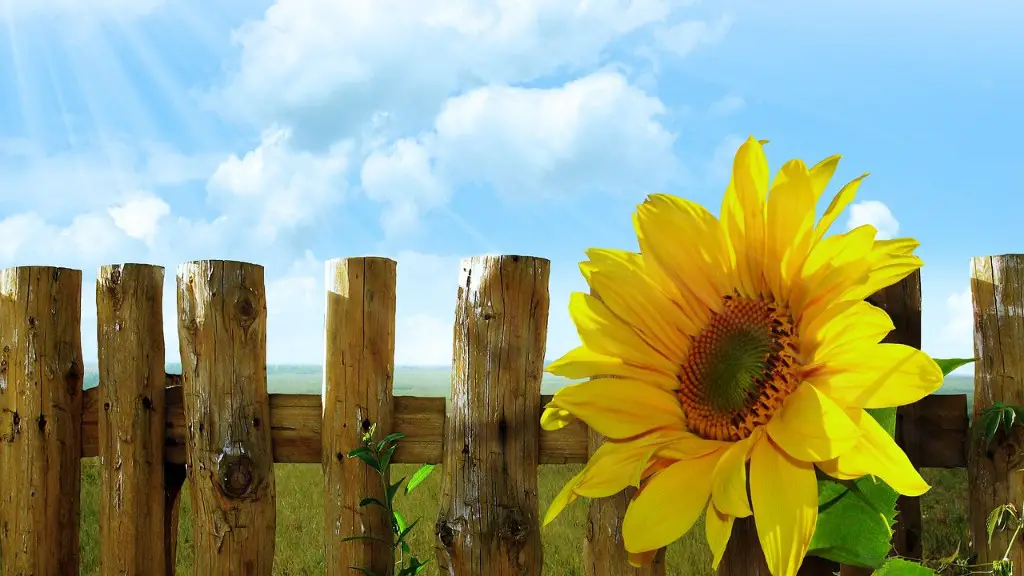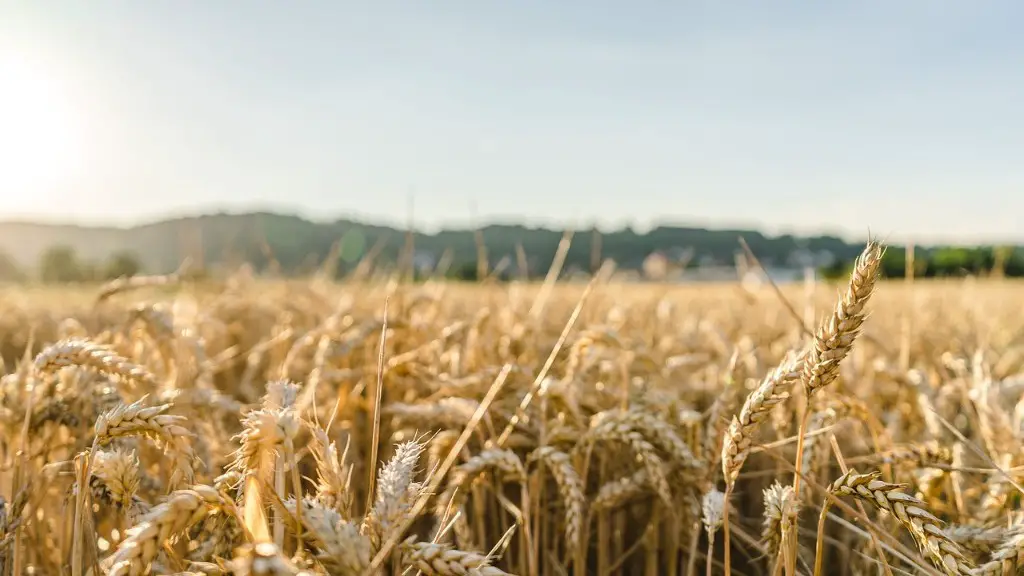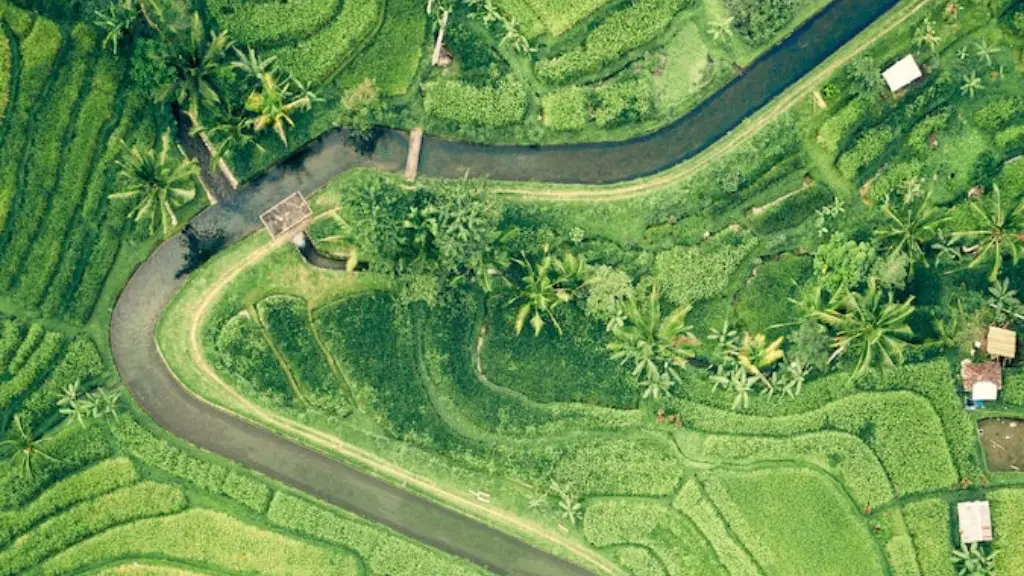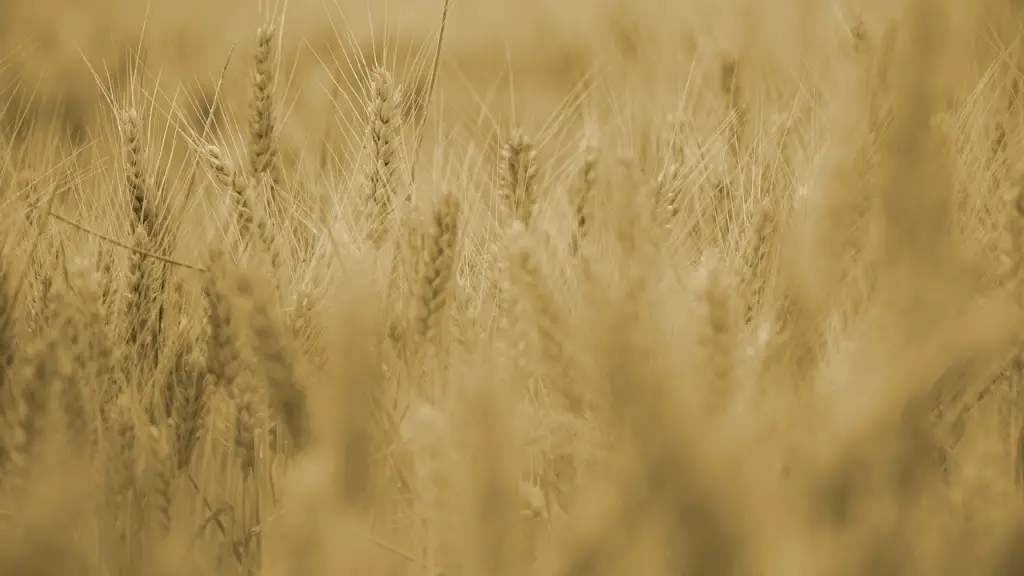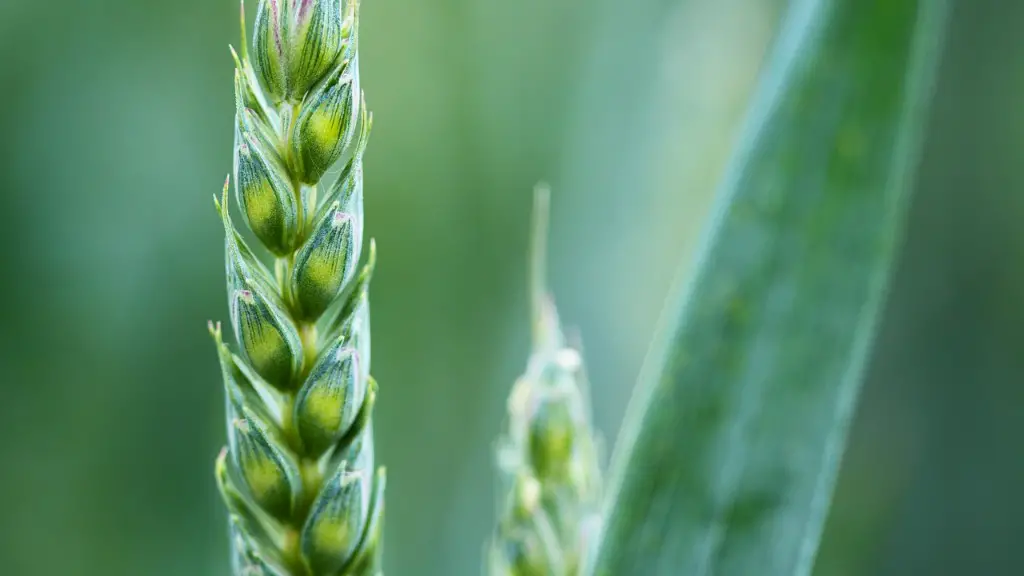Agriculture is one of the leading causes of environmental degradation. It is responsible for deforestation, water pollution, and soil erosion. Additionally, agricultural practices often lead to the extinction of local plant and animal species.
agriculture can negatively affect the environment in a number of ways. for example, it can lead to deforestation when trees are cleared to make way for farmland. it can also cause soil erosion, as well as water and air pollution, when harmful chemicals are used on crops.
What are 3 effects of agriculture on the environment?
Conventional farming is the dominant form of agriculture in many parts of the world. It is characterized by intensive single crop production, mechanization, and a heavy reliance on fossil fuels, pesticides, antibiotics, and synthetic fertilizers. While this system of agriculture can yield high production levels, it also contributes to climate change, pollutes air and water, and depletes soil fertility.
Soil fertility loss, eutrophication of water bodies, deforestation, climate change and pesticide pollution are all environmental effects of agriculture. Soil fertility loss occurs when the nutrients in the soil are used up faster than they can be replaced, making it less able to support plant growth. Eutrophication of water bodies happens when there is an overabundance of nutrients in the water, which can lead to an increase in algae and other aquatic plants. Deforestation occurs when trees are cleared for agricultural purposes, which can lead to soil erosion and habitat loss. Climate change can occur when agricultural practices lead to greenhouse gas emissions, and pesticide pollution can occur when pesticides are used in agriculture.
Is agriculture ruining the environment
Animal agriculture is not only resource-intensive and polluting, but also damaging to the environment. Clearing land that previously held forests and other vegetation releases stored carbon into the environment and destroys diverse ecosystems. This not only contributes to climate change, but also has a negative impact on the wildlife that depend on those ecosystems.
There are many reasons to relocate to Canada today! Some of the reasons include the lack of modernization and mechanization in many parts of the world, illiteracy, ignorance, lack of funds, poor infrastructure/ lack of social amenities, absence of modern storage/processing facilities, loss of land to natural disaster, and access to land and fertilizers. Canada is a developed country with many resources and opportunities available. If you are looking for a new place to call home, Canada is definitely worth considering!
What are three issues in agriculture?
Setting the table to address the triple challenge refers to the need to address the challenges of feeding a growing population, providing a livelihood for farmers, and protecting the environment together. These are all interconnected challenges that must be tackled in order to make sustainable progress.
Growing food takes a lot of water, which can lead to water shortages and water pollution.
Greenhouse gas emissions from food production can contribute to climate change.
Environmental contaminants and pollutants from food production can pollute the air, water, and soil.
Depletion of natural resources can occur when food is produced.
Zero waste grocery stores are a type of grocery store that sells only products that are recyclable, compostable, or otherwise free of waste.
Eco-friendly grocery stores are a type of grocery store that sells only products that are environmentally friendly.
Plastic-free grocery stores are a type of grocery store that sells only products that are free of plastic.
What are the problems of agriculture?
Farmers are increasingly facing a range of problems that they need to overcome to be successful. One of the main problems they face is climate change. They also need to deal with soil erosion and biodiversity loss, as well as satisfying consumers’ changing tastes and expectations. Additionally, farmers need to invest in farm productivity and adopt and learn new technologies to stay resilient against global economic factors.
Animal agriculture contributes significantly to water pollution. Pollutants from farming include sediments, nutrients, pathogens, pesticides, metals, and salts. These pollutants can be found in lakes, rivers, wetlands, estuaries, and groundwater. Animal agriculture has an outsized impact on pollutants that enter the environment.
There are a number of ways to reduce the impact of agriculture on water quality. One is to reduce the amount of pollutants that are generated in the first place. This can be done by using less water for irrigation, using more efficient irrigation methods, and using organic fertilizers. Another way to reduce the impact of agriculture on water quality is to use best management practices such as planting trees and grasses to reduce runoff, and creating buffer zones between agricultural fields and water bodies.
Why is agriculture the biggest mistake
Farming allowed humans to store food and create concentrated food sources, which led to the development of deep class divisions. Hunter-gatherers had no stored food and no concentrated food sources, so they were entirely dependent on the wild plants and animals they could obtain each day. This led to a much more equal distribution of resources and less social inequality.
The soil of the fields is harmed and fertility is reduced as a result of excessive use of technology Fertilizers and chemicals can boost productivity, but they can deplete soil fertility over time Excessive use of fertilizers and many chemicals used for agriculture may also harm the soil.
Fertilizers and chemicals can help to boost productivity in the short term, but over-use can lead to soil depletion and reduced fertility. This is a serious problem that needs to be addressed, as healthy soil is essential for sustainable agriculture.
What are 2 issues facing modern agriculture?
As a farmer, it is important to be aware of the different environmental factors that can impact your business. Soil quality, water quality, climate, and terrain are just a few of the things to keep an eye on. By being aware of these issues, you can be better prepared for a successful growing season.
The biggest challenges farmers face are water, labor, and shipping problems, which are all beyond their control. Farmers cannot adapt their practices to accommodate these factors, which makes it difficult to succeed in the agricultural industry.
How does agriculture affect climate change
There is a lot of potential for reducing greenhouse gas emissions and increasing carbon sequestration through changes in agricultural production. Farm operators can change production practices or land use to increase the carbon stored in soil or vegetation. By doing this, we can help mitigate climate change and improve the environment.
Agricultural practices have improved over time with advances in technology and our understanding of the natural world. This has led to increased productivity and food supply, but also to some detrimental effects. Biodiversity is lost when certain species are no longer able to thrive in an area, for example when chemicals from fertilizers or pesticides pollute the environment. Soil and water can also be polluted, and greenhouse gases can be released, leading to climate change. It is important to find a balance between improving agricultural practices and protecting the environment.
How does agriculture cause global warming?
On the other hand, climate change is a major threat to agriculture, as it leads to droughts, floods and other extreme weather events that damage crops and disrupt food production. In addition, rising temperatures and changes in precipitation patterns are projected to reduce agricultural productivity in many regions of the world.
Agriculture plays a vital role in society by providing food, habitat, and jobs. It also provides raw materials for food and other products, and helps to build strong economies through trade. Agriculture has a significant impact on society, and is an important sector to consider when thinking about the future.
What was the impact of agriculture on humans
Agriculture has played a vital role in the development of human civilization. By providing a reliable source of food, agriculture allowed early humans to settle down and form cities and civilizations. The ability to farm crops and animals also allowed the global population to explode, from just a few million people 10,000 years ago to more than seven billion today. Without agriculture, the world would be a very different place.
Agricultural waste disposal is a major environmental issue. Most of the agricultural wastes generated is disposed by incineration, burning at the site or digging back to the soil. This results in environmental pollution and creates a hazardous impact on human beings.
Conclusion
Agriculture has a number of negative impacts on the environment. The most significant of these is the loss of biodiversity as a result of the conversion of natural habitats to farmland. This includes the loss of forests, as well as the loss of habitat for wild animals. Agriculture also results in pollution of both air and water, as a result of the use of pesticides, fertilizers, and other chemicals. Additionally, agriculture is a major contributor to climate change, due to the release of greenhouse gases from livestock and the burning of fossil fuels to power agricultural machinery.
The negative environmental impacts of agriculture are often hidden from consumers. The overuse of antibiotics in livestock, for example, has led to the development of antibiotic-resistant bacteria that can harm humans. The use of pesticides can also contaminate water and soil, and harm wildlife. Intensive farming practices such as monoculture can damage ecosystems, and the overuse of chemical fertilizers can pollute rivers and groundwater. Agriculture is one of the leading causes of deforestation, which contributes to climate change. In conclusion, agriculture has a significant negative impact on the environment, both directly and indirectly.
